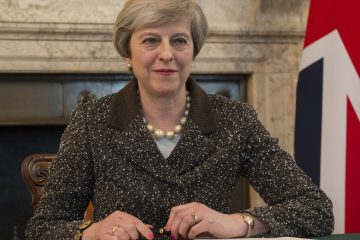Looking Beyond the White House: A Blueprint for the UK’s International Cooperation
The chasm between what the presidencies of Trump and Biden mean for the ‘special relationship’ between the US and the UK has starkly demonstrated how dependent the UK is on the occupant of the White House for its relationship with the US. It would be easy for the UK to forget the lessons it learned from engaging with Trump, who put less value on the bilateral relationship with the UK, because of the comparative enthusiasm of President Biden. However, it is exactly the experience of the Trump era that should convince UK policymakers to think about how to insulate the UK from volatility in the White House. US-UK cooperation on areas like security and defence will never be in question, but the likelihood of a broad trade deal, …
Undoing the Fixed Term Parliaments Act
In the month of November, Boris Johnson’s government will most likely instate a committee review of the Fixed Term Parliaments Act (FTPA) with the ultimate goal of fully repealing it. This Act, introduced in 2011, was supposed to fix the date of the general election to be every five years. Its planned repeal is part of a number of sweeping constitutional reforms that would empower the British executive over Parliament, which the Conservative Party vowed to push for in its 2019 electoral manifesto. With the ongoing global pandemic and the protracted Brexit talks with Brussels, the Conservative’s plan to repeal the FTPA have largely flown under the public’s radar. Yet if a repeal goes through, it would have a significant …
#Indiref2: Twitter and the Potential for a Second Scottish Independence Referendum
On Twitter, conversations around Scotland’s independence, dampened momentarily by a failed referendum in 2014, have been reinvigorated with the advent of Brexit. This article examines how public sentiment towards Scottish independence varies across the United Kingdom’s four constituent nations (England, Wales, Northern Ireland, and Scotland) by analyzing tweets made in January of this year in lead up to Brexit. Perhaps not surprisingly, the majority of tweets totaling 4,462 (71.4%) on the subject were sent from the mainland of Scotland. 1,387 (22.2%) tweets were sent from England, whereas Wales and Northern Ireland have 286 and 212 tweets respectively, collectively accounting for less than 6% of the all tweets (see Figure 1). Despite the significant difference in the volume of tweets, the …

Can Europe Make It? The EU After Brexit
Brexit has weakened populists on the continent? This is wishful thinking. No longer willing to leave the EU, instead populists are determined to take it over. Brexit is a moving target. Each time we think we have a deal, the British House of Commons decides to re-think. It’s like the famous passage from T.S. Eliot: “Time yet for a hundred indecisions/And for a hundred visions and revisions,/ Before taking a toast and tea.” Boris Johnson expected the Parliament to approve the exit deal he reached with the EU. Instead, the Parliament voted for an amendment tabled by a Tory MP, Sir Oliver Letwin. The amendment withholds approval of the deal, until the legislation to enact it is safely passed – …

London and the rest: regional transport disparities in the UK
Crossrail, still trumpeted as the largest construction project in Europe, and once held up as a paragon of a well-run, on-time and on-budget development, is now late and seriously over budget. Praise has been replaced by political infighting as the blame game gets into full swing and warnings that this will further imperil Transport for London’s (TFL) already shaky looking finances. However, hidden beneath the debris of mismanagement is something much worse: the willingness of the British government to plough vast sums into transport in London, whilst simultaneously underfunding transport in the rest of the country. Across the UK public transport has been de-regulated and privatised under policies originating in the 1980s, yet, London is a treated as a special …

Our Day Will Come: The Inevitability of Irish Unification as Brexit Approaches
On June 23rd, 2016, the citizens of the UK voted to leave the European Union. This began an unprecedented process of dissociation, commonly known as Brexit. Among the many challenges that Brexit poses is how to handle the border between Britain and the Republic of Ireland. In the recent past, the “soft” border between the two nations has allowed for the free flow of people and goods. However, if Brexit negotiations fail, a “hard” border will replace the currently soft border between the Republic and Northern Ireland. This presents a problem because under present conditions the border allows for mutually beneficial economic and social exchange, as well as having been instrumental in guaranteeing the Northern Irish peace process. This border …

The UK General Election 2017: What’s been happening in the polls?
Since the general election was called Labour have gone up in the GB vote intention polls while the Liberal Democrats and especially UKIP have dropped. The Conservatives have fluctuated but on average remained steady. The following graph shows the overall trends. Looking at those pollsters that have published at least two polls since 18th April, the picture is pretty consistent for Labour, the Liberal Democrats and UKIP. As following three graphs of GB polls by fieldwork end date show, the trends are pretty much the same for nearly all pollsters. The more complicated picture is for the Conservatives. They went up on average at the beginning of the campaign, but, as the graph below shows, this was true for some …

Has the Fixed-term Parliaments Act failed?
On April 19, 2017, parliament voted to endorse the government’s motion to hold a UK general election on 8 June 2017. This was the first time that the provisions of the Fixed-term Parliaments Act (FTPA) were invoked. When the Act was introduced in 2011, the coalition government justified it by arguing that “fixed-term parliaments will have a positive impact on our country’s political system; providing stability, discouraging short-termism, and preventing the manipulation of election dates for political advantage.” Yet, the ease with which Prime Minister Theresa May was able to trigger the early election in light of her 21 point opinion poll lead over Labour over the Easter weekend appeared to cast doubt on its ability to deliver these aims. …









